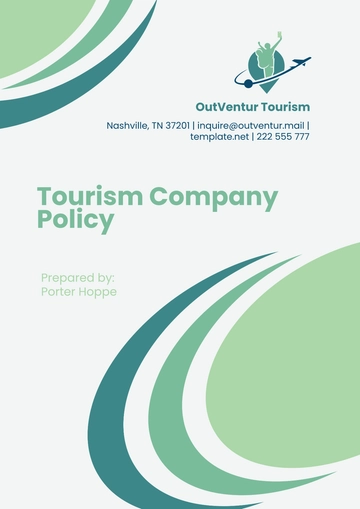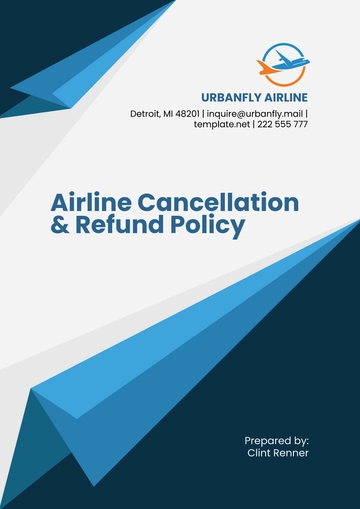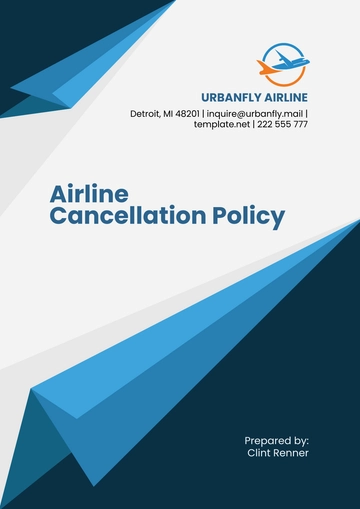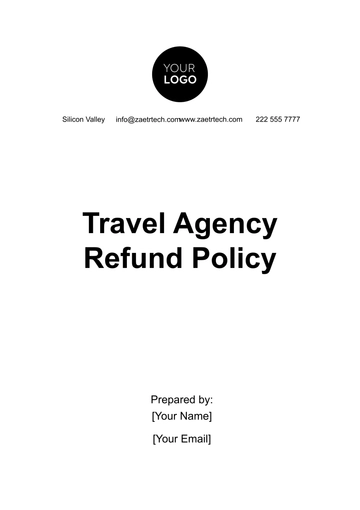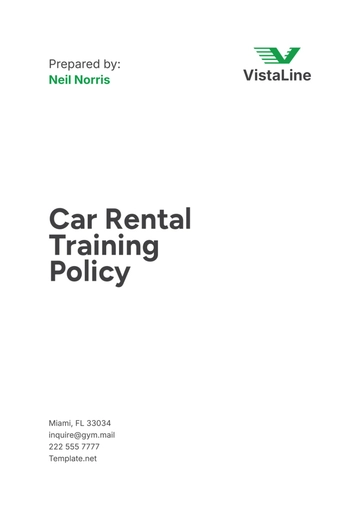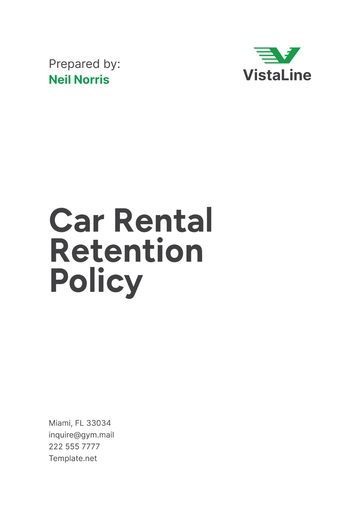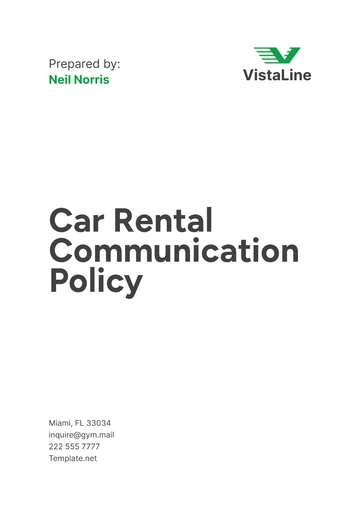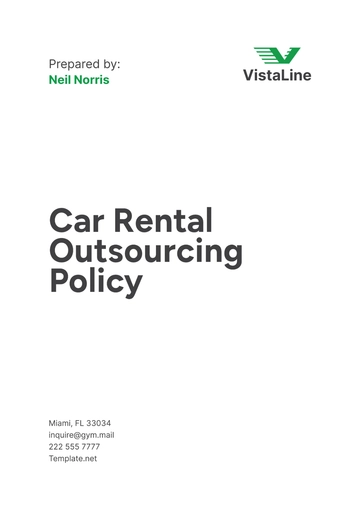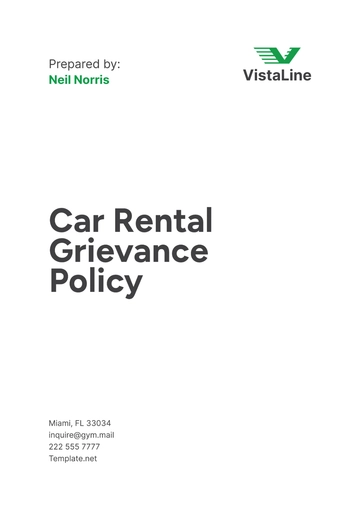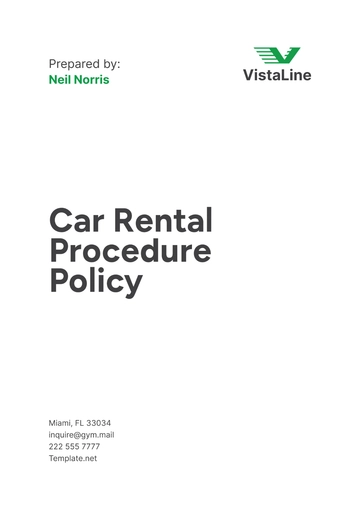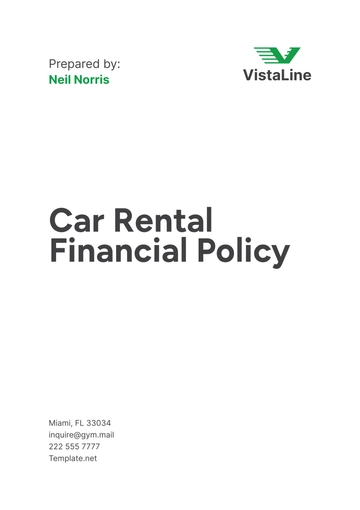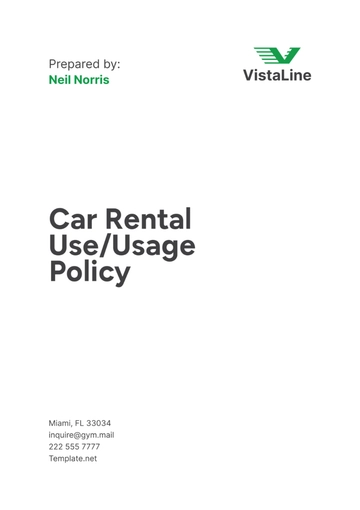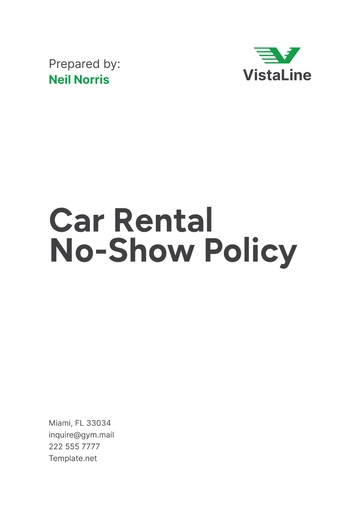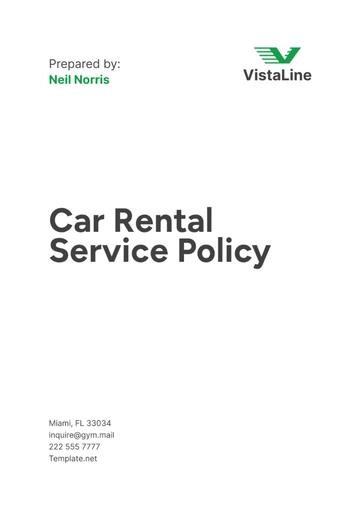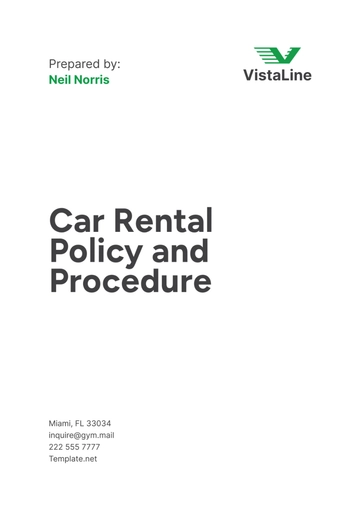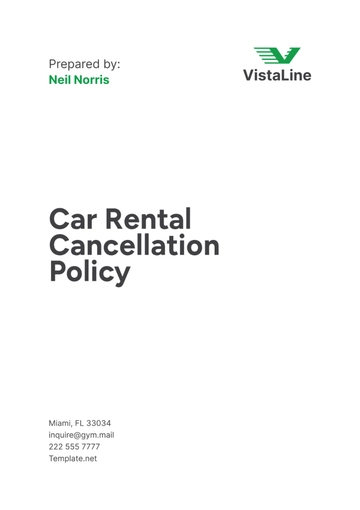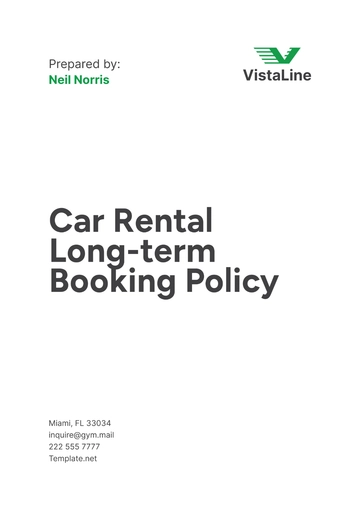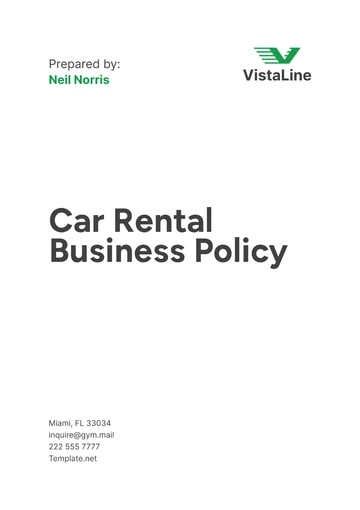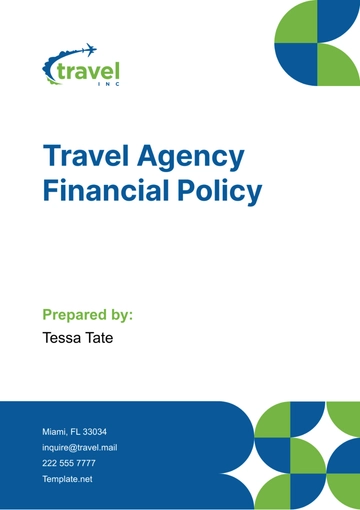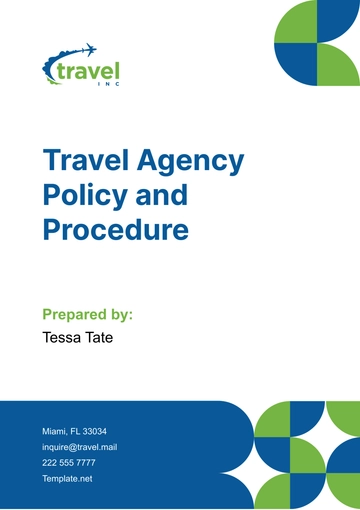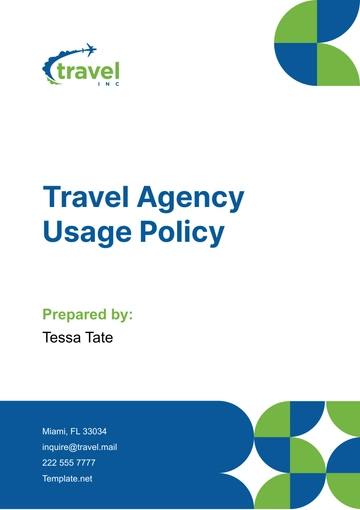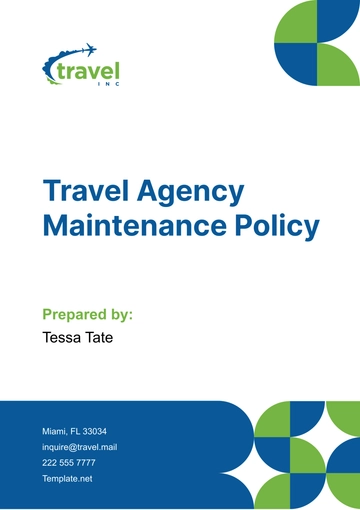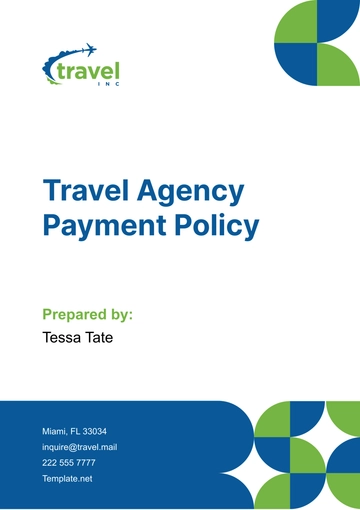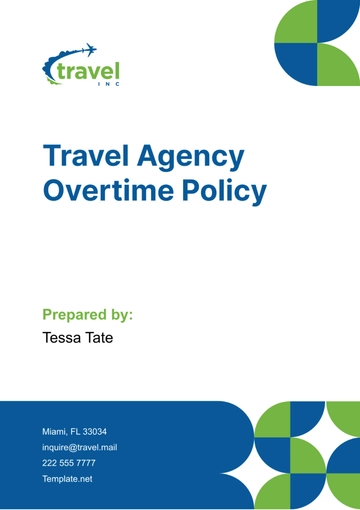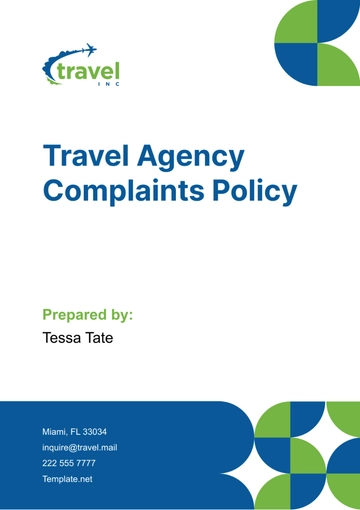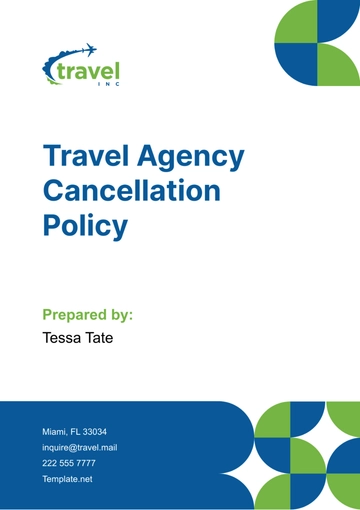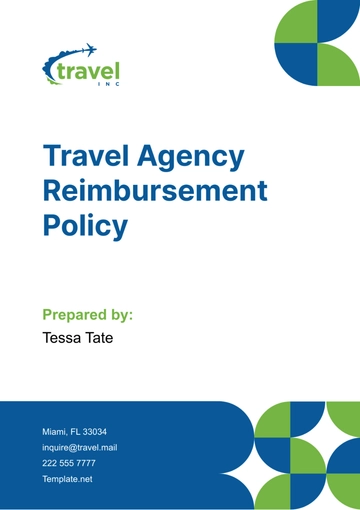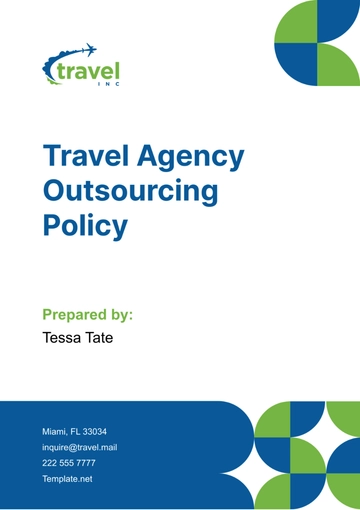Free Travel Agency HR Policy
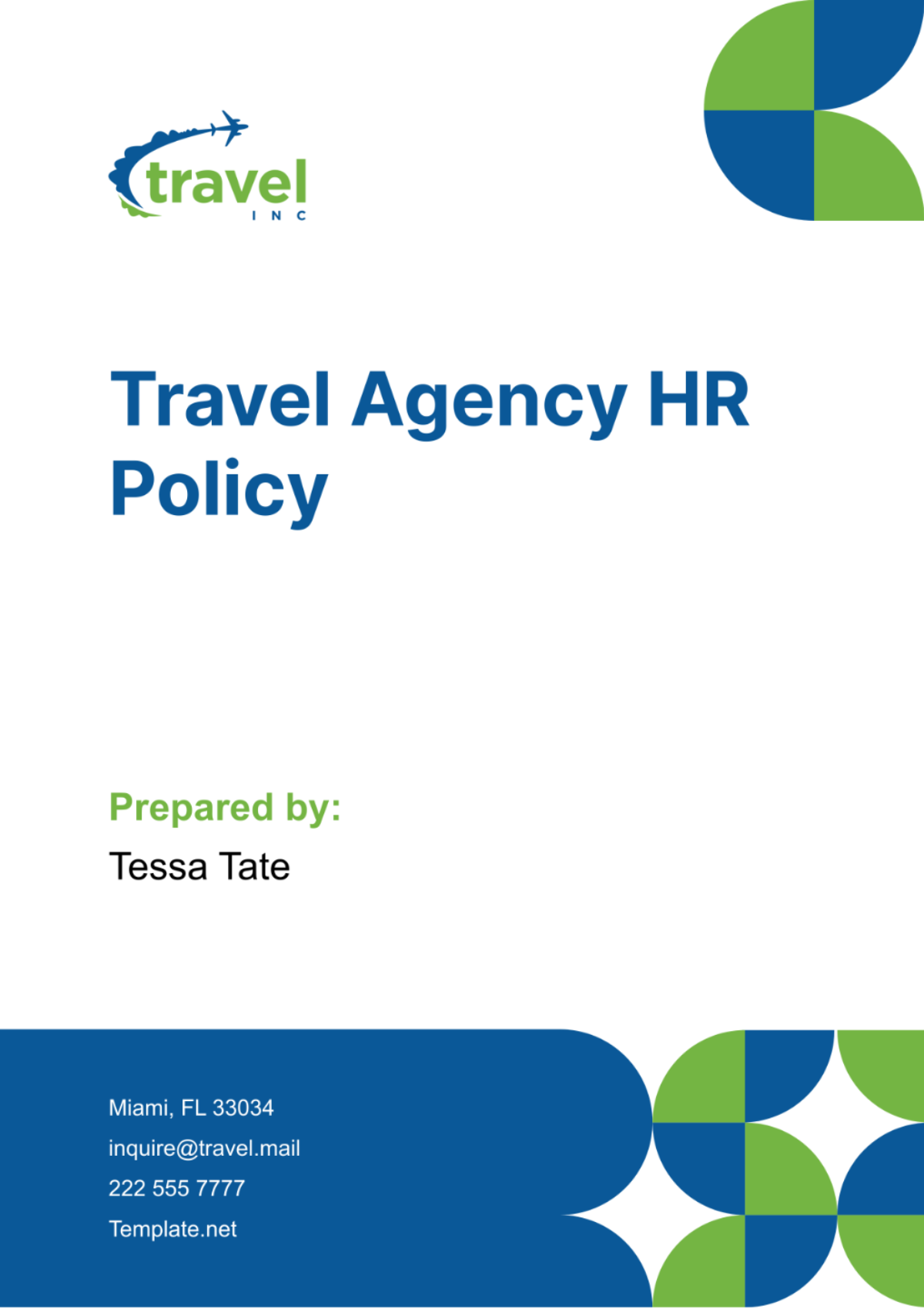
I. Introduction
At [Your Company Name], we believe that our employees are our most valuable asset, and we are committed to creating a supportive and inclusive work environment where everyone can thrive. Our Human Resources Policy serves as a guiding framework for all HR-related activities within our organization. It outlines our core values, expectations, and the rights and responsibilities of both employees and the company.
II. Recruitment and Hiring
A. Recruitment Process
Our recruitment process begins with a thorough analysis of the job requirements, followed by targeted job postings on relevant platforms and channels to attract a diverse pool of candidates. We utilize a combination of screening tools, including resume reviews, interviews, assessments, and reference checks, to evaluate candidates' qualifications and suitability for the role.
B. Selection Criteria
Candidates are selected based on a comprehensive assessment of their skills, experience, qualifications, and alignment with our organizational values and culture. We prioritize diversity and inclusion in our selection process and strive to create a workforce that reflects the diverse communities we serve. Our selection criteria are designed to ensure fairness, transparency, and equal opportunities for all applicants.
III. Employee Classification and Employment Terms
A. Employment Types
We offer a range of employment types, including full-time, part-time, temporary, and contract positions, to meet the varying needs of our workforce and business operations. Each employment type comes with specific benefits, entitlements, and expectations outlined in our Employee Handbook and employment contracts. We provide clear guidance on the rights and responsibilities associated with each employment type to ensure mutual understanding and compliance.
B. Probationary Period
Newly hired employees may undergo a probationary period, typically ranging from 30 to 90 days, during which their performance, conduct, and fit within the organization are assessed. This period allows both the employee and the company to evaluate the suitability of the employment relationship and address any concerns or issues that may arise. At the end of the probationary period, a performance review is conducted to determine the employee's continuation of employment and eligibility for regular benefits.
IV. Compensation and Benefits
A. Salary Structure
Our salary structure is designed to be competitive within the travel industry and reflects market trends, employee experience, and job responsibilities. Salaries are regularly reviewed and adjusted to remain competitive and aligned with industry standards. In addition to base salaries, we offer performance-based incentives, bonuses, and other rewards to recognize and reward employees for their contributions to the success of the organization.
B. Employee Benefits
We provide a comprehensive benefits package to support the health, well-being, and financial security of our employees and their families. Our benefits include health insurance, dental and vision coverage, retirement plans, paid time off, and flexible spending accounts. We regularly review our benefits offerings to ensure they remain competitive and meet the evolving needs of our workforce.
V. Employee Conduct and Discipline
A. Code of Conduct
Our Code of Conduct sets forth the standards of behavior expected from all employees, including honesty, integrity, respect, and professionalism. Employees are expected to adhere to ethical business practices, comply with company policies and procedures, and treat colleagues, clients, and stakeholders with dignity and respect. Violations of the Code of Conduct may result in disciplinary action, up to and including termination of employment, depending on the severity of the offense.
B. Disciplinary Process
We follow a progressive disciplinary process designed to address misconduct, poor performance, or policy violations in a fair and consistent manner. This process typically includes verbal warnings, written warnings, probationary periods, and, if necessary, termination of employment. Disciplinary actions are documented and communicated to the employee in writing, with opportunities for the employee to respond and seek resolution through appropriate channels.
VI. Performance Management
A. Performance Evaluation
Our performance evaluation process is designed to provide regular feedback, recognize achievements, and identify opportunities for growth and development. Performance evaluations are conducted annually or bi-annually, depending on the employee's role and tenure with the company. Evaluations are based on clear and measurable performance metrics, including key performance indicators (KPIs), job objectives, and competencies relevant to the employee's role and responsibilities.
B. Training and Development
We are committed to investing in the professional development and career growth of our employees through ongoing training and development opportunities. Our training programs cover a range of topics, including technical skills, leadership development, customer service excellence, and industry-specific knowledge. Employees are encouraged to take advantage of training opportunities to enhance their skills, expand their knowledge, and advance their careers within the organization.
VII. Leave and Time Off
A. Vacation Leave
Employees are entitled to paid vacation leave based on their length of service and employment type. The accrual rate and maximum carryover of unused vacation days are outlined in the Employee Handbook. Employees are encouraged to plan and request vacation leave in advance, taking into consideration workload and team availability.
B. Sick Leave
We provide paid sick leave to allow employees to attend to their own illness or that of a family member. Sick leave may be used for medical appointments, recovery from illness, or caregiving responsibilities. Employees are required to notify their supervisor as soon as possible in the event of illness and follow the sick leave reporting procedures outlined in the Employee Handbook.
VIII. Workplace Health and Safety
A. Safety Policies
Ensuring the health and safety of our employees is a top priority. We maintain a safe work environment by implementing and enforcing safety policies, procedures, and protocols. Employees are provided with appropriate training, equipment, and resources to perform their duties safely and effectively.
B. Emergency Procedures
Emergency response plans and evacuation procedures are in place to address a wide range of potential emergencies, including fires, natural disasters, medical emergencies, and security threats. Emergency exits, evacuation routes, and assembly points are clearly marked and regularly reviewed. Employees are trained on emergency procedures during orientation and periodic drills are conducted to ensure preparedness.
IX. Diversity and Inclusion
A. Diversity Statement
We are committed to fostering a culture of diversity, equity, and inclusion where all employees feel valued, respected, and empowered to contribute their unique perspectives and talents. We celebrate diversity in all its forms, including but not limited to race, ethnicity, gender, age, sexual orientation, disability, and veteran status.
B. Equal Opportunity
We provide equal employment opportunities to all employees and applicants without regard to their protected characteristics. Recruitment, hiring, training, promotion, and other employment decisions are based on merit, qualifications, and job requirements. We proactively address barriers to inclusion and strive to create a workplace where everyone has an equal opportunity to succeed and advance their careers.
X. Employee Relations
A. Conflict Resolution
We are committed to resolving workplace conflicts and disagreements in a fair, respectful, and timely manner. Employees are encouraged to address concerns or conflicts directly with their supervisor or through the designated channels outlined in the Employee Handbook. Mediation and conflict resolution techniques may be utilized to facilitate resolution and maintain positive working relationships.
B. Employee Engagement
We recognize that engaged employees are more productive, satisfied, and committed to achieving organizational goals. We foster employee engagement through regular communication, feedback mechanisms, recognition programs, and opportunities for involvement in decision-making processes. Employee feedback is valued and used to inform organizational initiatives and improvements.
XI. Termination and Separation
A. Termination Process
In the event of termination of employment, employees are provided with notice as per their employment contract or statutory requirements. The reasons for termination are communicated to the employee in a respectful and transparent manner. Employees may be eligible for severance pay, benefits continuation, and outplacement assistance, depending on the circumstances of their termination.
B. Return of Company Property
Employees are required to return all company property, including but not limited to laptops, mobile devices, access cards, keys, and confidential information, upon separation from the organization. An inventory of company property is conducted during the exit process to ensure all items are accounted for. Failure to return company property may result in deductions from final pay or legal action.
XII. Code of Ethics and Compliance
A. Ethical Standards
We expect all employees to conduct themselves with integrity, honesty, and professionalism in all business dealings and interactions. Our Code of Ethics prohibits bribery, corruption, conflicts of interest, and other unethical behaviors. Employees are encouraged to raise concerns or seek guidance if they are unsure about the ethical implications of a particular situation.
B. Compliance
We adhere to all applicable laws, regulations, and industry standards governing our business operations. Compliance with legal and regulatory requirements is a fundamental aspect of our corporate governance framework. We provide regular training and updates to employees on compliance-related matters to ensure awareness and understanding of their obligations.
XIII. Legal Compliance
A. Legal Obligations
We are committed to upholding the rights and protections afforded to employees under federal, state, and local laws and regulations. This includes but is not limited to laws governing minimum wage, overtime pay, workplace safety, discrimination, harassment, and privacy. Non-compliance with legal obligations may result in legal liability, penalties, fines, or reputational damage to the organization.
B. Policy Review
The HR Policy is reviewed annually by the HR department in collaboration with management and legal advisors to ensure its effectiveness, relevance, and compliance with applicable laws and regulations. Any updates or revisions to the policy are communicated to employees in a timely manner through email, intranet postings, or other appropriate channels.
XIV. Policy Review and Amendment
A. Review Process
The HR Policy undergoes regular reviews to ensure its alignment with the organization's goals, values, and legal requirements. Feedback from employees, managers, and other stakeholders is solicited and considered during the review process. The HR department is responsible for coordinating the review and approval of policy updates.
B. Amendment Process
Proposed amendments to the HR Policy are subject to approval by senior management and legal advisors. The amended policy is communicated to employees through company-wide announcements, training sessions, or updated versions of the Employee Handbook. Employees are encouraged to review the policy changes and seek clarification if needed.
XV. Acknowledgment and Agreement
By signing below, I acknowledge that I have received a copy of the [Your Company Name] HR Policy and agree to comply with its provisions and guidelines.

[Your Name]
[Date]
- 100% Customizable, free editor
- Access 1 Million+ Templates, photo’s & graphics
- Download or share as a template
- Click and replace photos, graphics, text, backgrounds
- Resize, crop, AI write & more
- Access advanced editor
Manage your travel agency's HR policies effortlessly with the Travel Agency HR Policy Template from Template.net. This editable and customizable template, powered by an AI Editor Tool, streamlines policy creation and adaptation to your agency's unique needs. Ensure compliance, fairness, and efficiency in HR management with this comprehensive solution. Simplify your HR processes today.
You may also like
- HR Policy
- Restaurant Policy
- Company Policy
- Accounting Policies and Procedures
- Website Policy
- Privacy Policy
- Safety Policy
- School Policy
- IT and Software Policy
- Law Firm Policy
- Construction Policy
- Interior Design Policy
- Travel Agency Policy
- Education Academic Policy
- Security Policy
- Real Estate Policy
- Expense Policy
- Software Policy
